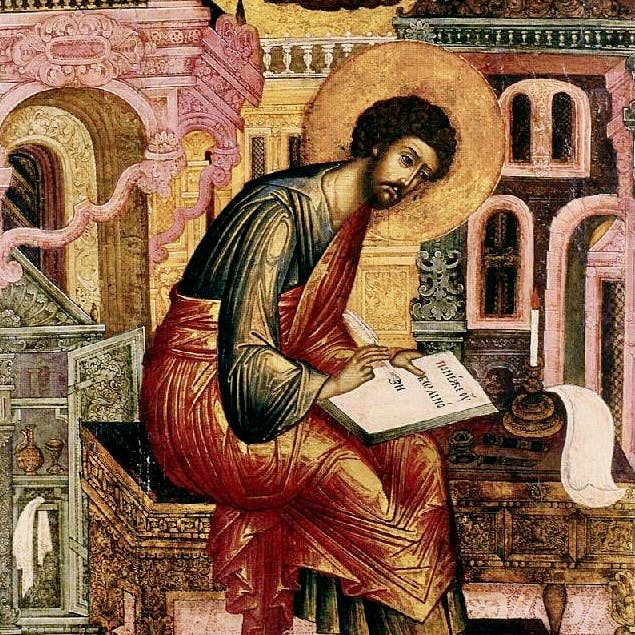What are "Lukan Priorities"?
So what’s the deal with this “Lukan priorities” thing? Great question, let’s talk about it.
First off, let’s just get this out of the way: The name “Lukan Priorities” is definitely a pun on Markan priority. Markan priority is the idea that the Gospel of Mark was written prior to the other synoptic Gospels, thus Markan priority. However, I don’t think that Luke was written prior to Matthew and Mark. Quite the opposite!1 That’s not the sort of priority I have in mind, though.
So if it’s not a Synoptic Problem chronology thing, what am I on about? Well, I’m on about the idea that Luke’s prologue (Luke 1:1–4) shows us at least some of the priorities that we should keep in mind when reading Luke–Acts, thus Lukan priorities. Here’s the prologue as the NET renders it:
Now many have undertaken to compile an account of the things that have been fulfilled among us, like the accounts passed on to us by those who were eyewitnesses and servants of the word from the beginning. So it seemed good to me as well, because I have followed all things carefully from the beginning, to write an orderly account for you, most excellent Theophilus, so that you may know for certain the things you were taught.
There’s much that could be said about these four short verses, but here are three priorities I think are worth highlighting.
- Luke–Acts is communal. What I mean is that Luke–Acts is a story that belongs to a community. Luke isn’t writing in a vacuum, but is rather writing in the wake of others who have written before him and under the influence of community leaders who have shaped the story that Luke sets out to tell. In other words, this story is being told within the context of a community that has its own storytelling tradition and leaders who have shaped that tradition (i.e., the “servants of the word” mentioned in v. 2). The point here is that Luke–Acts is written for a community and it’s meant to have an impact on that community (see v. 4).
- Luke–Acts doesn’t just tell; it retells. Luke–Acts is a story that has been told before. Luke is not the first to tell this story! In fact, Luke clearly references previous iterations of this same story, saying that “many have undertaken to compile an account” (v. 1). This posture of retelling is key: Luke–Acts isn’t new information. Luke isn’t telling this story for the first time, but is rather building on the tellings that have come before. Luke’s narrative takes the church’s existing story of Jesus and reshapes it into something new. So, this is not a one-and-done kind of story. It’s a story that is meant to be told, retold, and told again.
- Luke–Acts is transformative. Luke–Acts is a retelling with a specific purpose: Building the audience’s confidence in the story of Jesus that they already know (v. 4). This goal, retelling for the purpose of confidence-building, is the driving rhetorical force behind Luke–Acts. This story invites the audience to relive the journey of Jesus so that they can be confident in the faith that has been delivered to them. Luke is retelling for the sake of transformation. The goal is renewed faithfulness and certainty for Theophilus, the “one who loves God” (v. 3).
So what do these “Lukan priorities” mean for the way that we read Luke’s story? I suggest that we seek a liturgical clue. In many Christian liturgical traditions, my own Presbyterian tradition included, the weekly reading of the Gospel lesson is followed by the words, “This is the Gospel of the Lord,” followed by the response, “Praise to you, O Christ.” This exchange is different than the other readings in the liturgy, which are followed by the words, “This is the Word of the Lord.” Word versus Gospel? Why the difference? Why do we go out of our way to read the Gospels and why do we uniquely respond to their testimony like this? In my mind, it’s because we are observing these Lukan priorities! The community of faith tells, retells, and tells again the Gospels’ story of Jesus so that we might be strengthened and our faith confirmed by that same story. No matter how familiar we are with the story of Jesus, the Gospels are not information that we master and move on from. We can never “graduate” from the Gospels! Rather, the Gospels are a transformative story we habitually return to so that the Holy Spirit might use it to shape us into the image of Christ.
Although these priorities can be seen in all the Gospels in one way or another, Luke’s particular iteration of them makes the Lukan story especially fascinating. Reflecting on how Luke’s story carries out the rhetorical purpose of the prologue is the main reason why I get excited about studying Luke–Acts, hence the name, “Lukan Priorities”!
Footnotes
-
Personally, I’m still a bit torn between two-/four-source understandings and something like the so-called Farrer hypothesis, but I’m not going to get into that here. I’m usually inclined to just go with whatever Goodacre is saying. ↩
